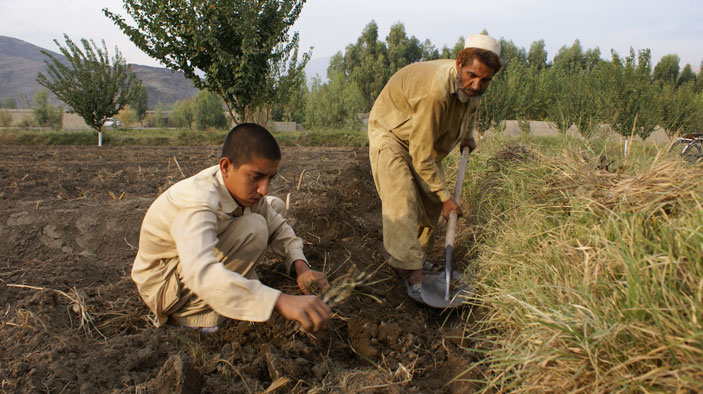Afghanistan—Incentives Driving Economic Alternatives for the North, East, and West (IDEA-NEW)
Client: U.S. Agency for International Development
Duration: 2009-2015
Region: Eastern Europe and Central Asia
Country: Afghanistan
Solutions: Economic Growth
The Incentives Driving Economic Alternatives for the North, East, and West (IDEA-NEW) program dissuaded Afghans from growing poppy by increasing access to licit, commercially viable, alternative sources of income.

Sample Activities
- Respond rapidly to community-identified needs—for roads, water, power, local reconstruction—with projects that foster trust and infuse communities with jobs and income.
- Build on those gains with long-term projects focusing on sustainable growth in agriculture and rural development. IDEA-NEW is working in 15 of Afghanistan’s 34 provinces and 152 priority districts.
Select Results
- Created 55,041 full-time equivalent jobs in agriculture, community-constructed infrastructure, and rural-business development projects and paid more than $7.8 million in wages.
- Benefited 1,089,356 families through community-constructed infrastructure projects, agriculture-voucher programs, grants, and capacity-building activities.
- Expanded 14,522 hectares of alternative crops under cultivation.
- Trained 497,009 farmers on approaches to increase agriculture productivity and 2,577 government line staff in areas related to their work.
- Provided training to 15,347 business owners to improve their business skills and increase their sales.
- Facilitated more than $8.1 million in agricultural exports.
- IDEA-NEW prioritized local procurement and procured $13 million from Afghan vendors.
- Provided improved care and management for more than 9.4 million livestock.
RELATED CONTENT:
Egypt—Technical Assistance Improving Access to Finance by Facilitating Business Expansion of Promising and Growing Small and Medium Enterprises
DAI increased access to capital and financial resources for underserved groups of small firms by working with the Bank of Alexandria in enhancing understanding of the issues specific to small firm lending, introducing the best lending and advisory practices, helping to design and roll out a programme that includes nonfinancial services aiming to improve financial literacy among final beneficiaries.
Read More